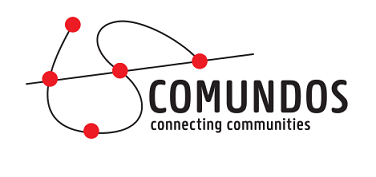Populism Explained
Do you also have the feeling that we live in a more polarised world? Well, one of the reasons is the rise of populism.
What is populism?
It is a centuries-old strategy to gain power in politics. Populism makes no difference between right and left, poor or rich. It is a tactic that has been used since the Romans to divide people and achieve power
What are the Mechanisms of populism?
 Populists divide the population in ‘We’ and ‘Them’. We - the people - are the good ones, and They - the elite in power - are the bad ones. They are corrupt and only defend their own interests, and they want to impose a globalised and multicultural world on us.
Populists divide the population in ‘We’ and ‘Them’. We - the people - are the good ones, and They - the elite in power - are the bad ones. They are corrupt and only defend their own interests, and they want to impose a globalised and multicultural world on us.
The world is changing fast because of globalization: people are scared of losing their jobs to immigrants. They are afraid of refugees arriving from different cultures. Or that, because of climate change, the government will prohibit them from traveling by car or airplane.
The populists feed this fear, by creating a common enemy: they blame minority groups like immigrants, refugees, LGBTQ+, jews or muslims. And they also feed the anger of people against the politicians in power, who defend these minorities and do nothing for Us - the majority.
They want a leader that comes up with easy solutions: “Throw the immigrants out!” “This town will be an LGBT-free zone!” People want a leader who will save them and turn everything back to ‘normal’, back to the way it was.
Populists discredit and suspect institutions and experts such as academics, scientists, educators, journalists … because they are too critical of the populist’s solutions and tell people how to think and act. They promote liberal values (such as gender equality and new lifestyles).
The populists tell the people: let’s liberate ourselves of these elites and “take our country back again”. In general, the populists don’t want to debate, they merely fuel emotions.
But what are the consequences of populism?
Because of the lack of debate in the political arena, the struggle between opposite opinions is taken out to the streets. Society becomes more and more polarised, which leads to chaos and violence. This makes people even more afraid and public opinion shifts towards the demand of strong and authoritarian leadership.
The problem is that many problems our world is facing today - like climate change and migration - demand for international cooperation between countries. But the populists reject this and defend the option: ‘everyone for himself’. O problema é que muitos problemas que nosso mundo enfrenta hoje - como mudança climática e migração - exigem cooperação internacional entre países.
What do Social Media have to do with this?
Social Media may be used as a perfect mechanism, to create echo chambers or ‘bubbles’, where everybody shares the same opinion. We are less confronted with other opinions and lack different points of view. This can lead to intolerance and a tunnel vision of society.
Populists take advantage of fake news and disinformation - which is very common on social media - as a perfect tool to divide and rule. It makes polarisation become exponential.
In society we need politics to find a common ground between citizens and make compromises. In this globalized and mediatized society, citizens need to learn new skills, to be able to critically analyse information and participate in the social debate. So everybody can take part of the community to make their voice heard.
Freedom of speech is a pilar of democracy and a healthy society. But what does freedom of speech really mean?
The French philosopher Voltaire said: “I may disapprove of what you say, but I will defend to death YOUR right to say it.”
.” Unfortunately nowadays people - under the influence of populists and social media - think that freedom of speech means: “I can say whatever I want, and you SHUT UP!”.
We should bring back ethics and respect into the public debate. The challenge is that we learn to communicate with different nationalities, origins, languages, ethnic groups and religions to work together and learn to live together effectively.
A gift for Comundos
Over the years, Comundos has helped remote communities around the world by teaching critical thinking, media literacy and the use of communication technology.
To do this effectively, we need your support for computers, translations, courses and social media management.
Thank you .
BE11 1030 2973 8248




